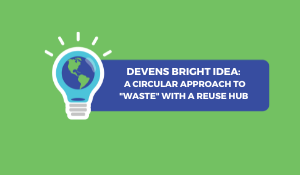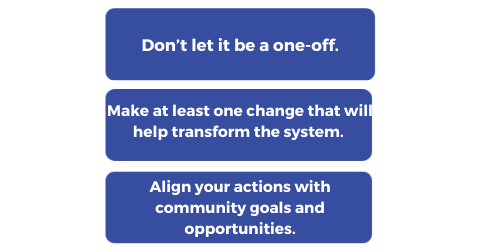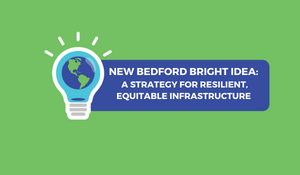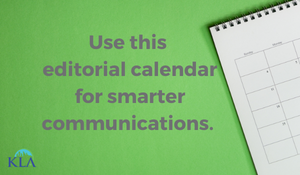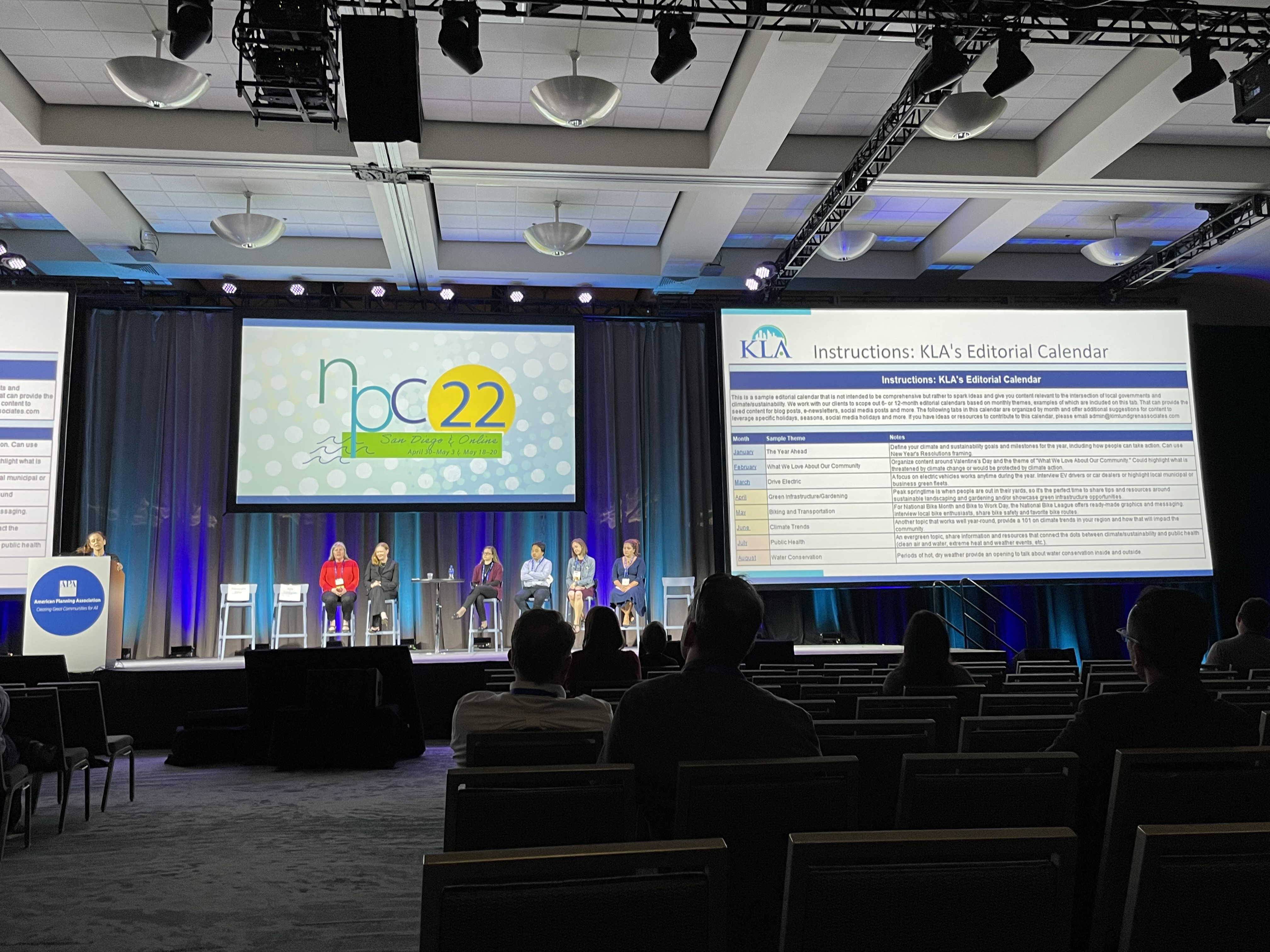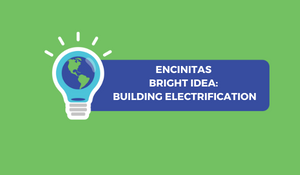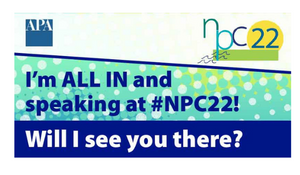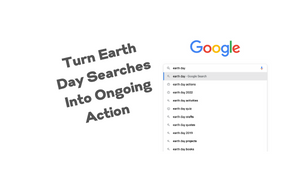Kim Lundgren
Kim has spent the last 15 years designing, securing funding for, and implementing sustainability programs focused on climate change adaptation and mitigation. As one of the early municipal sustainability pioneers, Kim developed the first climate action plan in the Commonwealth of Massachusetts and one of the first municipal adaptation plans in the country. Her emphasis on continuous improvement and innovation has helped local governments across the country get closer to achieving their sustainability goals.
KLA clients lead the way with innovative, scalable, replicable climate solutions at the local level.
Each month in 2022 we will shine a spotlight on their bright ideas.
One image that represents the perils of our planet is that of a landfill. Look closely and you will see food that could have been composted, plastic and paper that should have been recycled, and loads of items that could have easily been reused or repurposed. In addition, landfills are one of the largest sources of methane, a greenhouse gas that is causing climate change.
Devens, MA, has a different vision. Thanks to the nonprofit Devens Eco-Efficiency Center and The Great Exchange program, on average 30,000 pounds of resources are diverted from landfills every year.
Read More
Topics:
infrastructure,
local leadership,
climate leadership,
equity,
bright ideas
It’s “Now or Never”: The Latest Warnings Highlight Need for Immediate, Targeted, Proven Actions
We have a "brief and rapidly closing window of opportunity to secure a livable and sustainable future for all."
“We've reached the now-or-never point of limiting warming to 1.5C.”
Those were the dire warnings from the IPCC’s (Intergovernmental Panel on Climate Change) most recent reports. Although the language was stunning, this was not the first alarm bell to be sounded – but it’s one of the last before it’s too late: “IPCC reports take about seven years to compile, making this potentially the last warning before the world is set irrevocably on a path to climate breakdown,” reported The Guardian.
How do we keep from being paralyzed with fear or denial?
The key is to take action. But not just any action.
Read More
Topics:
local leadership,
climate leadership,
climate science
KLA clients lead the way with innovative, scalable, replicable climate solutions at the local level.
Each month in 2022 we will shine a spotlight on their bright ideas.
Read More
Topics:
infrastructure,
local leadership,
climate leadership,
equity,
bright ideas
Kim's latest Sustainability Action Podcast is a conversation with longtime Environmental Planner for Cambridge, MA
We hear a lot about turnover in local governments, but for more than two decades with the City of Cambridge, MA, John Bolduc bucked the trend. During that time he also became an icon in the world of local climate action planning.
He joined Kim on her SAS Talk podcast recently to reflect on his career, Cambridge's many achievements, the importance of cities showing bold leadership, and what he sees on the horizon.

Read More
Topics:
local leadership,
SAS Talk Podcast,
climate leadership
Use this template to be more targeted, timely and effective with your climate and sustainability communications
Think about what makes the news headlines or gains social media traction. Some of it -- a sports upset, political spat or Hollywood faux pas (no one predicted that Will Smith slap) -- you can't plan for. But a lot of it you can.
The Super Bowl and its buzz worthy commercials hit every winter. Bill Murray memes will pop up on Groundhog Day, just as you'll see Yoda and Darth Vader everywhere on May the Fourth/May the Force day. Earth Day stretches across April. Every May is Bike Month. Summer heat waves happen. The holidays will consume us all in November and December.
The only question is: are you ready to leverage those opportunities for your climate and sustainability goals?
Read More
Topics:
community engagement,
communications
If you missed our sessions or couldn't make it to the National Planning Conference, we've got you covered
We are keeping busy with a packed APA NPC agenda, including leading one workshop and presenting during a Speed Share. If you didn't come to San Diego (man you're missing some gorgeous weather!) or missed these sessions, you don't want to miss out on all the juicy knowledge and practical tools we shared.
Read More
Topics:
local leadership,
APA,
climate leadership
KLA clients lead the way with innovative, scalable, replicable climate solutions at the local level.
Each month in 2022 we will shine a spotlight on their bright ideas.
Read More
Topics:
local leadership,
climate leadership,
bright ideas,
buildings,
electrification
4 Ways to Connect With Us at #NPC22
Members of the KLA Team Speaking, Accepting Awards April 30-May 3
The American Planning Association (APA) National Planning Conference (NPC) was long a staple on KLA's presentation circuit. From Phoenix in 2016, through New York, New Orleans and San Francisco, we had booths in the exhibit hall, spoke at countless sessions, attended amazing events and receptions, loaded up on best practices, and connected with previous and future clients among hundreds of others. Alas the NPC we had most been anticipating was 2021 on our home turf in Boston -- especially when we found out we won the 2021 Leadership in Sustainability Award -- was held virtually.
But now we're pumped to head back in person to #NPC22 in San Diego. If you or a colleague will be there, here are 4 ways we would love to catch up:
Read More
Topics:
APA,
California,
planning
For local governments, engaging the community is key to achieving climate goals, and Earth Day is one of the best opportunities to get people to take action. That’s especially true right now when the recent headlines – like USA Today’s "'It's now or never': UN climate report shows globe is on 'track toward an unlivable world'"-- are driving awareness and, ideally, action.
The next few weeks are when people will be searching online for ways to "go green." It's when you have the chance to convert someone looking for a one-time litter or river clean up into a regular participant in your climate programs.
Earth Day can be a springboard for climate action in your community.
But you can't do this if people need a PhD to understand the challenges your community faces and where you're headed. Or if they have to navigate a typical local government website to find the most effective actions. Don’t lose the Earth Day momentum!
Read More
Topics:
sustainability,
community engagement,
dashboard,
resilience,
earth day,
KLA


